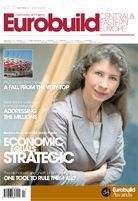On May 31st 2012 in Warsaw?s Marriott hotel, representatives of the sector gathered for the annual Retail Vision conference. It was to be a day of animated debate about a sector that is always changing, but often seems to stay the same. Two topics kept recurring throughout the day: whether online retail threatened sales in more traditional stores, and the necessity to tailor a shopping centre's offer to the requirements of its location. The first dicussion kicked off with a presentation by Piotr Wasilewski, the retail agency director of DTZ, in which the latest figures for the Polish retail market were presented. The panel that followed was moderated by Maria Kobryń of the Trusiewicz & Siwko law firm, while the remaining panellists included Yann Guen, vice president of Mayland Real Estate, Anna Malarczyk, the managing director of Futureal Management Poland as well as Maja Gawrońska, CEO of Etos (Diverse). Maria Kobryń was not much surprised by the data; however, she noted that the f




























































